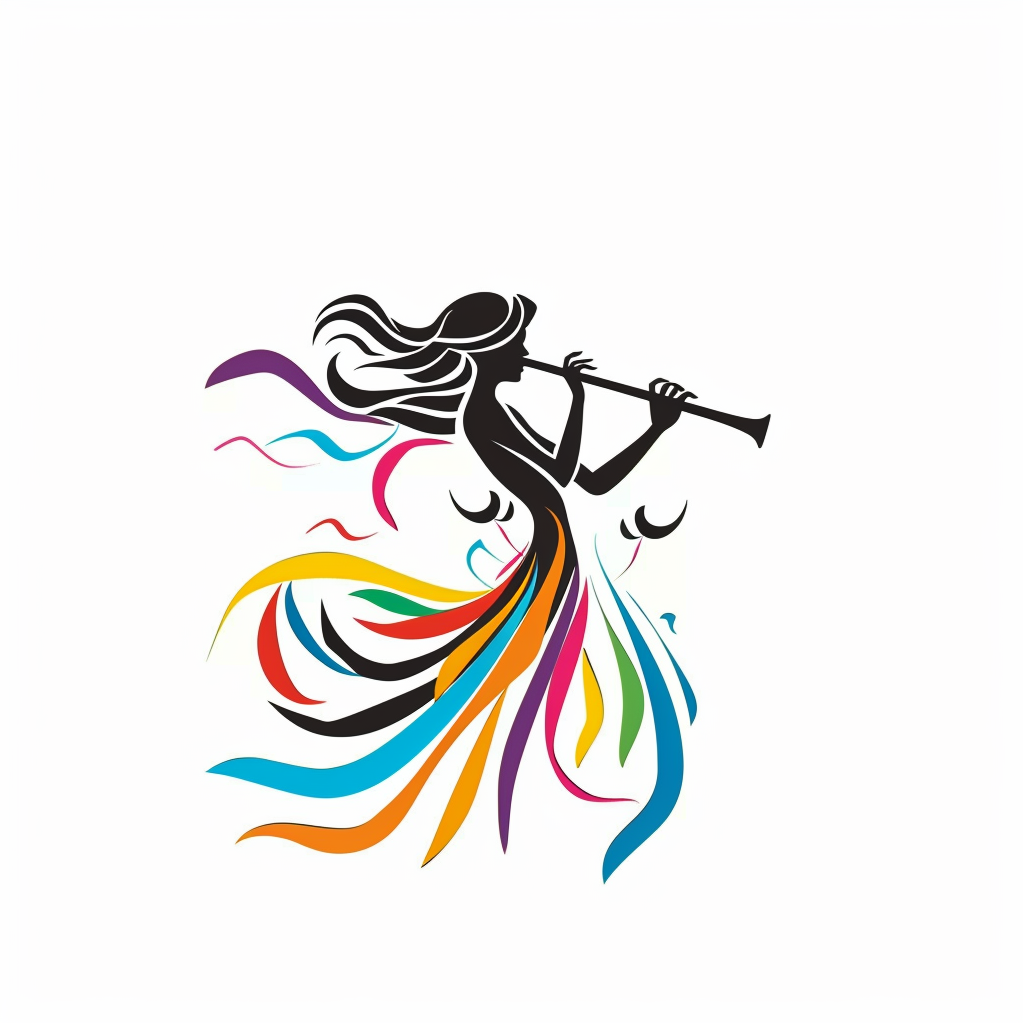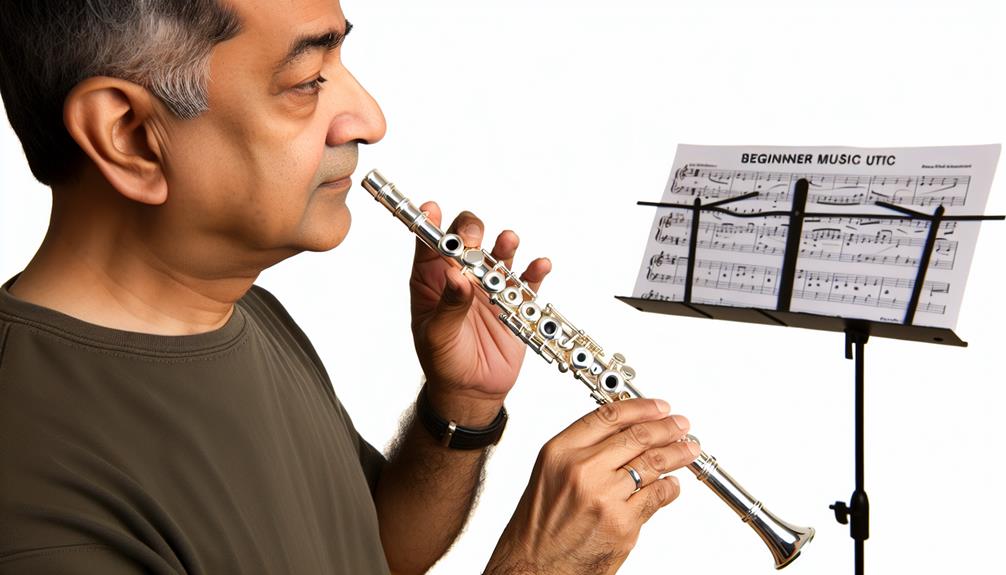Selecting the right flute as a beginner is crucial to your musical journey. With a plethora of options available, it's vital to understand the key factors that influence the decision-making process.
From the material of the flute to the key mechanism and ergonomics, each aspect plays a vital role in determining the best choice for a novice player. Additionally, considering reputable brands and budget-friendly options can further aid in making an informed decision.
Stay tuned to unravel the essential factors to consider when choosing a flute tailored for beginners.
Key Takeaways
- Consider budget, commitment, and preferred music genre before choosing a beginner-friendly flute.
- Evaluate different types like standard, closed hole, and plastic flutes for comfort and ease of play.
- Look into reputable brands like Yamaha, Gemeinhardt, and Jupiter for quality and confidence in your choice.
- Opt for budget-friendly options like Gemeinhardt 2SP or Yamaha YFL-222 prioritizing durability, sound quality, and affordability.
Factors to Consider Before Buying
Before purchasing a flute, beginners should carefully evaluate their budget and desired level of commitment to learning the instrument. Setting a budget is crucial as flutes come in a wide price range, from affordable student models to high-end professional ones. Consider investing in a quality instrument that will last longer and provide a better playing experience. Understanding your commitment level is also essential. Learning the flute requires dedication and regular practice to progress. If you are unsure about your commitment, starting with a more budget-friendly option might be wise.
Additionally, beginners should think about the type of music they want to play. Different flutes are suited for various music genres, so aligning your choice with your musical preferences is key. It's also beneficial to seek advice from experienced flute players or music teachers. Their insights can help you make an informed decision based on your goals and aspirations as a beginner flutist. By carefully considering these factors, beginners can choose a flute that best suits their needs and sets them on the path to musical growth and fulfillment.
Types of Beginner-Friendly Flutes
When considering beginner-friendly flutes, aspiring flutists should explore options that cater to their skill level and budget constraints. Finding the right flute can make the learning process more enjoyable and rewarding. Below is a table outlining some common types of beginner-friendly flutes:
| Type of Flute | Description |
|---|---|
| Standard Flute | Traditional flute design, ideal for beginners due to ease of play and versatility. |
| Closed Hole Flute | Beginner-friendly design with holes covered, aiding in finger placement and tone production. |
| Plastic Flute | Lightweight and durable option, suitable for young beginners or those on a tight budget. |
Each type of flute has its own unique qualities, so it's essential to try out different options to see which one feels most comfortable and produces the desired sound. Beginners should prioritize ease of play, durability, and affordability when selecting a flute to start their musical journey.
Recommended Brands for Beginners
What are some reputable flute brands that are recommended for beginners looking to start their musical journey? When it comes to choosing a flute as a beginner, reliability and quality are key. Yamaha is a widely recognized brand that offers a range of beginner-friendly flutes known for their durability and excellent sound quality.
Gemeinhardt is another popular choice among novice flutists, providing well-crafted instruments that are easy to play and maintain. Jupiter flutes are also highly recommended for beginners due to their affordability and solid construction.
Selmer and Pearl are additional brands that offer reliable options for those starting out on the flute. These brands are known for producing instruments that are comfortable to hold and play, making them ideal for beginners who are still developing their technique. By choosing a flute from one of these reputable brands, beginners can feel confident in their instrument choice and focus on honing their skills and enjoying the process of learning to play the flute.
Budget-Friendly Flute Options
In the realm of musical instruments, novice flutists seeking budget-friendly options can explore a variety of flute models that offer both affordability and quality. One popular choice for beginners on a budget is the Gemeinhardt 2SP, known for its durable construction and reliable performance. Yamaha YFL-222 is another excellent option, offering a clear and responsive tone at an affordable price point. For those looking for a more budget-friendly alternative, the Jean Paul USA FL-220 is a great entry-level flute with decent sound quality.
Additionally, Mendini by Cecilio provides a range of budget-friendly flute options that come as part of a comprehensive beginner package, including essential accessories like a case and cleaning materials. These flutes are designed to offer a good starting point for beginners without breaking the bank. When considering budget-friendly flute options, it's essential to prioritize durability, sound quality, and ease of play to ensure a positive learning experience for aspiring flutists.
Tips for Maintaining Your Beginner Flute
Proper maintenance of your beginner flute is essential to ensure its longevity and optimal performance. Taking care of your instrument not only preserves its quality but also enhances your playing experience. Here are some tips for maintaining your beginner flute:
- Regular Cleaning: After each practice session, gently wipe down the flute with a clean, soft cloth to remove moisture and fingerprints.
- Avoid Excessive Force: When assembling the flute, do not use excessive force as it can damage the delicate mechanisms. Instead, handle the parts with care and assemble them gently.
- Keep it Protected: Invest in a sturdy case to store your flute when not in use. This protects it from dust, humidity, and potential impacts.
- Professional Check-ups: Schedule regular check-ups with a qualified technician to ensure that your flute is in good condition. They can help identify and address any issues before they become major problems.
Frequently Asked Questions
What Is the Best Age to Start Learning the Flute as a Beginner?
The best age to start learning the flute as a beginner is typically around 8 to 10 years old. This age range is considered optimal because children at this stage have developed enough physical coordination to handle the instrument and understand basic musical concepts.
Starting at this age allows for gradual progression and skill development, setting a strong foundation for future musical endeavors. It's important to consider individual readiness and interest when determining the ideal age to begin flute lessons.
Are There Any Specific Exercises or Techniques That Can Help Beginners Improve Their Flute Playing Skills?
To enhance their flute playing skills, beginners can benefit from dedicated practice of fundamental techniques such as proper embouchure formation, breath control, finger coordination, and tone production.
Additionally, incorporating scales, arpeggios, and etudes into their practice routine can help build dexterity, agility, and overall musicality.
Consistent practice, guidance from a qualified instructor, and perseverance are key elements in improving flute playing proficiency for beginners.
Can a Beginner Learn to Play the Flute Without Taking Formal Lessons?
Embarking on a musical journey without formal guidance is akin to wandering through an uncharted forest without a map. While it's possible to glean some knowledge independently, the structured guidance of a skilled instructor can illuminate the path to mastery.
Beginners may find formal lessons essential for developing a solid foundation in flute playing, as they instill proper technique, correct errors early on, and provide invaluable feedback for growth and progress.
How Long Does It Typically Take for a Beginner to Become Proficient at Playing the Flute?
Becoming proficient at playing the flute typically varies based on individual practice habits, dedication, and musical aptitude. Progress can be observed within a few months to a year of consistent practice, with proficiency developing over a few years.
Regular practice, guidance from a skilled instructor, and a passion for music all contribute to the speed of improvement. Setting realistic goals and maintaining a disciplined practice routine are key to achieving proficiency in playing the flute.
Are There Any Common Mistakes That Beginners Should Avoid When Starting to Play the Flute?
When starting to play the flute, beginners should avoid common mistakes such as improper hand positioning, incorrect embouchure formation, neglecting to practice regularly, and not seeking guidance from a qualified instructor. These errors can hinder progress and lead to bad habits.
Conclusion
In conclusion, when choosing a flute for beginners, it is important to consider factors such as the material, key system, and brand reputation.
Yamaha and Gemeinhardt are highly recommended brands for beginners, offering quality instruments at affordable prices.
Remember, 'you get what you pay for', so investing in a good beginner-friendly flute will help you progress faster in your musical journey.

